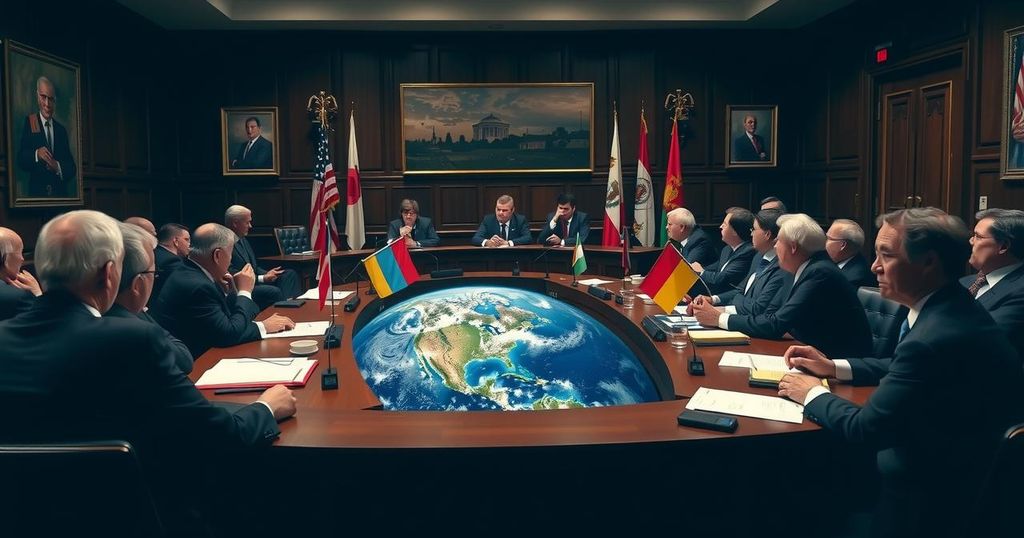Representatives from vulnerable nations called for legal accountability at the ICJ, arguing that a few high-emission countries are responsible for the climate crisis while advocating for reparations. The proceedings include testimonies from impacted nations, emphasizing the urgent need for concrete international action in the face of rising climate impacts.
A pivotal hearing at the International Court of Justice (ICJ) in The Hague has prompted representatives from vulnerable nations to call for a legal reckoning for countries that significantly contribute to climate change. Vanuatu’s climate envoy, Ralph Regenvanu, stated that a select group of states bears the responsibility for the crisis, as they are responsible for the majority of greenhouse gas emissions while facing the least immediate repercussions. Pacific island nations, particularly Vanuatu, are already confronting devastating impacts such as rising sea levels and intensified disasters, a plight they attribute to the actions of major emitters.
The current proceedings are a result of years of advocacy and diplomatic efforts, culminating in the UN General Assembly’s unanimous support for an advisory opinion from the ICJ regarding states’ obligations to combat climate change. Throughout the next two weeks, the court will collect statements from 98 nations, including historical emitters like the United Kingdom and Russia, alongside less-prosperous countries that contribute minimally to emissions but suffer from their adverse effects.
During the hearing, Regenvanu emphasized the scale of greenhouse gas emissions, which have surged over 50% since 1990, despite increasing scientific warnings. Legal representatives from various Pacific nations highlighted that these actions infringe upon the rights of their peoples, with Melanesian Spearhead Group attorney Ilan Kiloe asserting that many communities may not survive the climate crisis.
Margaretha Wewerinke-Singh, lead counsel for Vanuatu and the Melanesian group, argued that several states have violated international law through insufficient regulatory actions and continued support for fossil fuel industries. Furthermore, she advocated for proportional reparations that align with historical emissions contributions, which could include financial compensation. Pacific Island Students Fighting Climate Change president Cynthia Houniuhi lamented the manipulation of global agreements, stating that large emitters’ actions contradict the spirit of the Paris Agreement.
As the ICJ processes this advisory opinion, it will be concurrently informed by findings from other international judicial bodies. Given that the ICJ’s advisory rulings are non-binding, they are anticipated to serve as authoritative references for future climate litigations and international negotiations. The hearings commenced with a ceremonial opening featuring political contributions and cultural performances, marking a significant moment in the discourse surrounding climate justice and accountability.
The ongoing climate crisis has disproportionately affected vulnerable nations, particularly Pacific Island countries. As these regions experience more severe weather patterns, rising sea levels, and existential threats to their way of life, the need for accountability from historically significant greenhouse gas emitters has become a pressing concern. The International Court of Justice’s deliberations aim to clarify state responsibilities within the framework of international law, building upon previous advisory opinions from various tribunals.
In summary, the ICJ hearings represent a critical juncture in the pursuit of climate justice, as vulnerable nations seek to hold major emitters accountable for their contributions to climate change. The testimonies presented reflect the urgent need for international legal frameworks to address the disparities in climate impacts. As the world waits for the court’s opinion, the emphasis on reparations for affected states underscores the moral and legal imperative to confront the climate crisis collectively.
Original Source: www.theguardian.com






